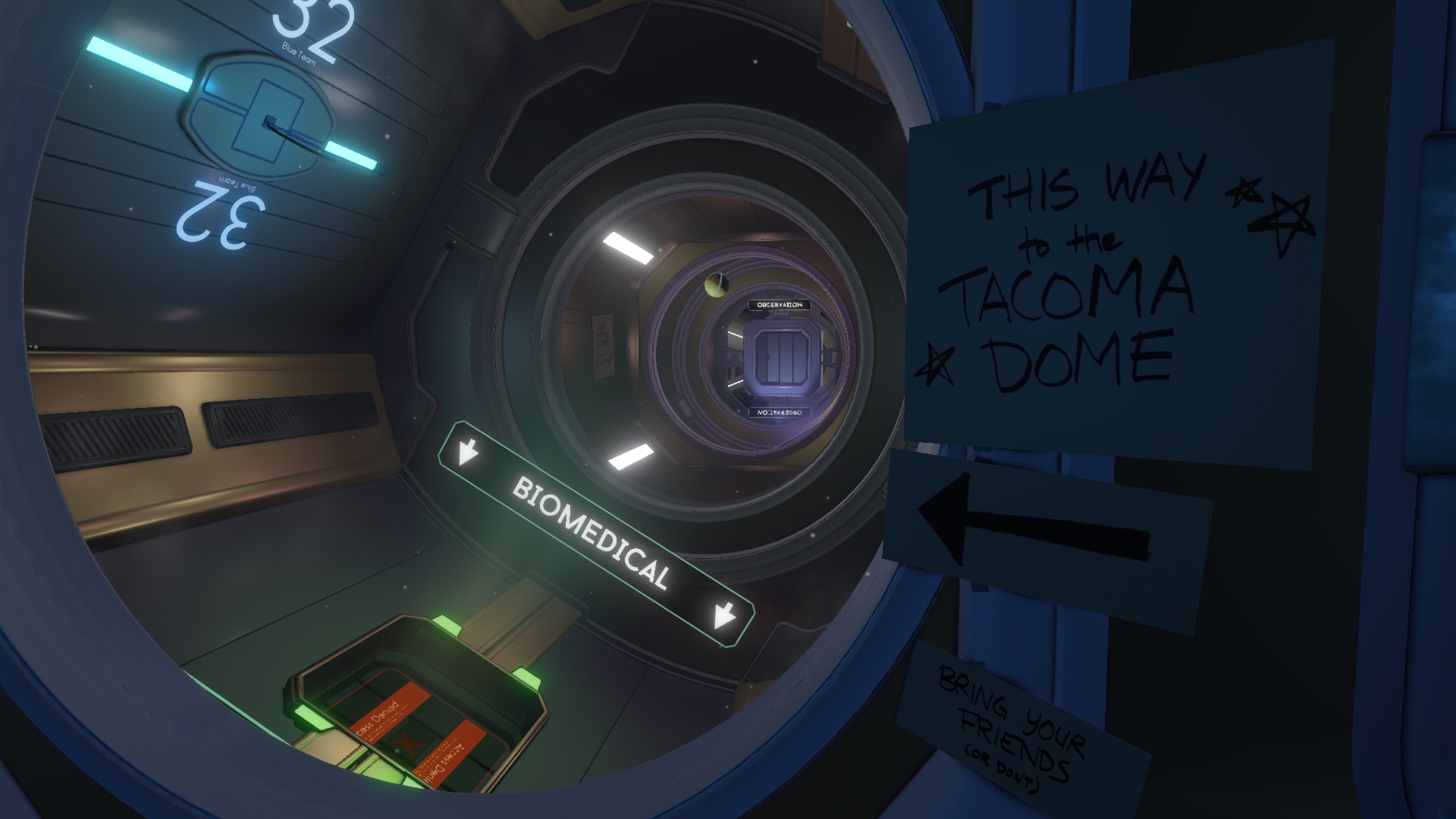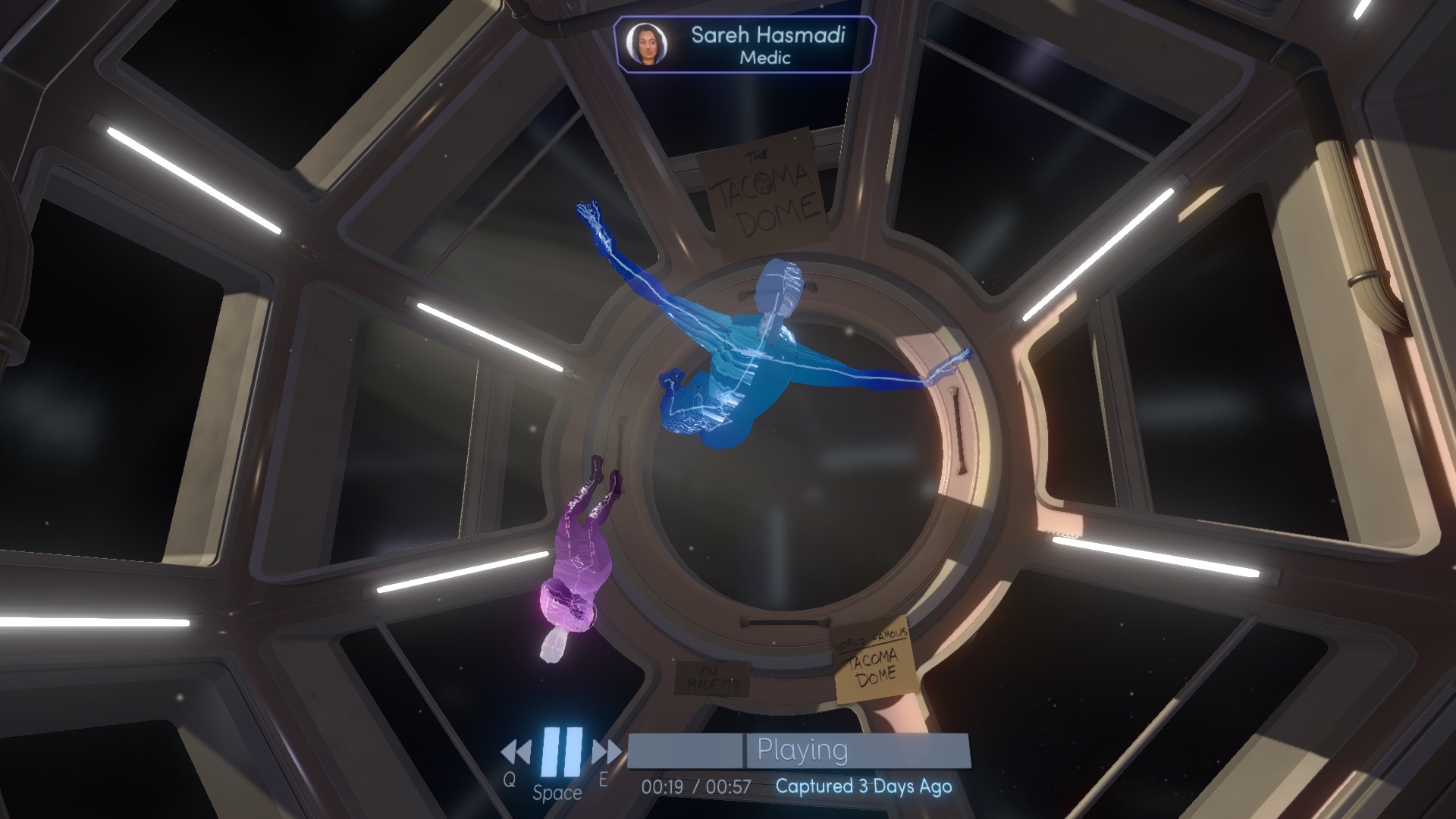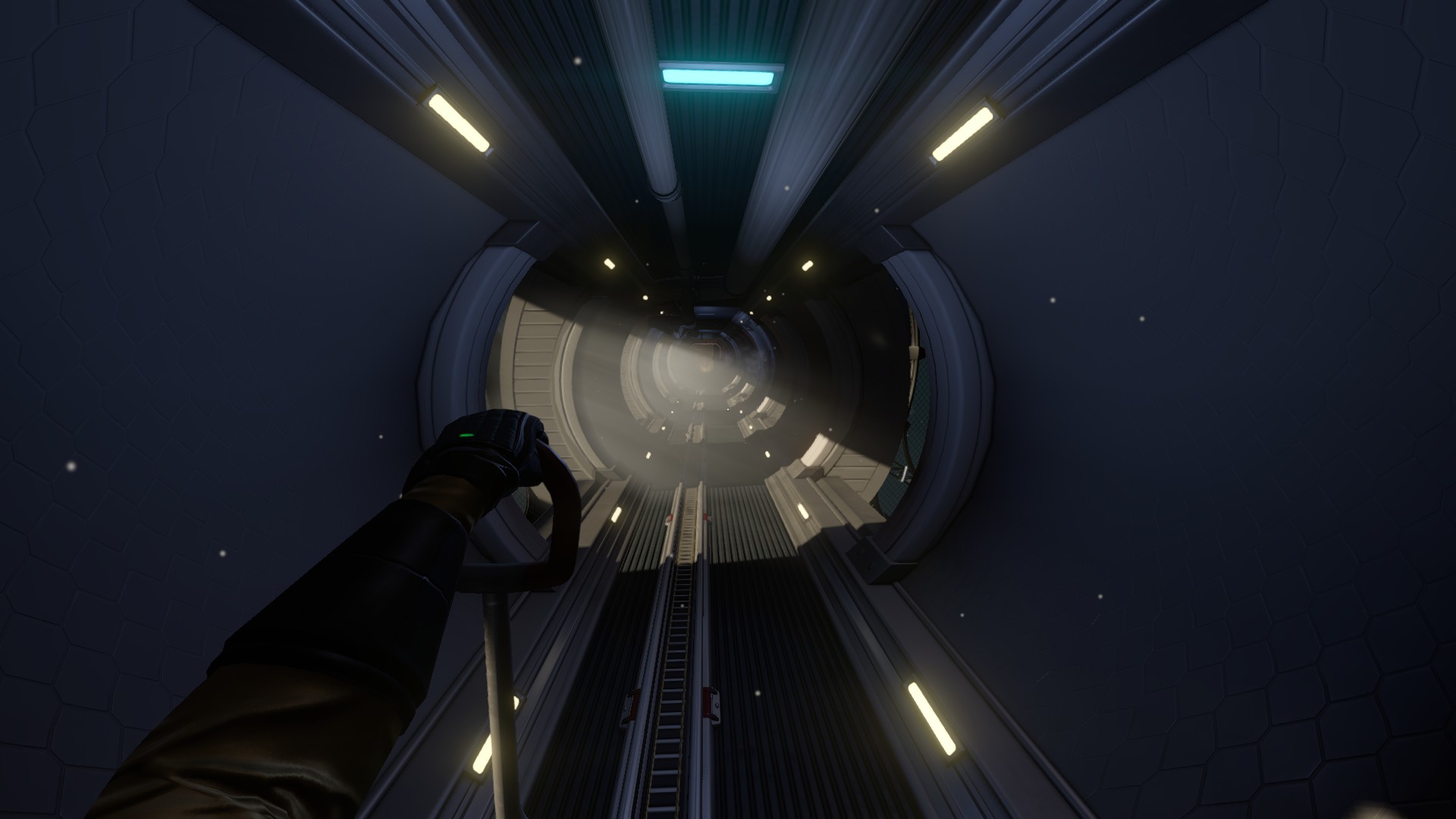Platforms:
Xbox One, PC
Released:
August 2, 2017
Publisher:
Fullbright
Developer:
Fullbright
Set on a space station in 2088, Tacoma tells the story of 6 astronauts and an AI who lose communication with the rest of the world and whose oxygen supply is plummeting to unsurvivable levels. Made by the development company that previously brought us Gone Home (Fullbright), players will notice strong similarities between the two games. Both can be classified as Walking Simulators in which the player’s primary input into the game is simply moving around the environment while a story unfolds around them. Whilst Gone Home tells a personal and potentially relatable story, Tacoma instead steps into the world of science fiction to tell a story that is more grandiose, yet still focused and intimate.
Playing as Amy (Amitjyoti) you board the space station that once held the 6 astronauts and use an Augmented Reality device to watch back scenes in real time of the astronauts and their movements / conversations. You slowly uncover what went wrong on the space station, who was to blame, and eventually the fate of the space station’s 6 inhabitants. More importantly though, you learn about these characters, uncover their personalities and their relationships with one another, and sympathise with their struggles and their impending doom.
First and foremost, Tacoma’s story was beautifully told. The characters, the dialogue and the voice acting was absolutely top notch. I love going into a game and feeling like the characters are written in a believable way because far too often video game characters feel like video game characters and not real people – this was not the case in Tacoma. In fact, Tacoma took the real life conversation angle one step further by allowing multiple characters to have multiple conversations at the same time, forcing you to listen in on one and ignoring the others – you know, just like real life.

This doesn’t mean you miss out on details however because the Augmented Reality projection you are viewing everything via is also able to be paused, rewound or fast-forwarded, meaning you can listen to one conversation, then rewind and then listen to another. This system worked perfectly and allowed the dialogue and world to feel so organic and natural. Characters would move around the ship, interact with other characters, go back off on their own, talk to the ship’s AI or just sit and listen to music – and you were able to witness it all. In this respect the game managed to feel very personal and even in such a small amount of time I was able to learn a great deal about these characters, what motivates them, and what they fear.
Even if Tacoma failed in every other aspect (it didn’t) I would still be impressed by the game simply because of this method of storytelling. It was engaging, immersive, detailed, and made everything feel real.
The world you occupy is also very detailed. You can discover a lot about the characters by reading through their messages with others, listening in on conversations or simply looking at the magazines or photos they keep around their room. Each character has a lot of detail and so does the world they were living in.
The problem I ran into with Tacoma was that the story builds up to reach some really interesting moments, but then it just kind of ends in quite an unsatisfying way. I loved the stories being told, both the smaller personal struggles and the overall narrative. I loved the reactions and ideas put forward by some characters and the ship’s AI as well as the politics that were going on in the background. I loved finding out details about what went wrong and why, but I didn’t appreciate how it all ended.
I think part of the problem was the game was just too short. I wasn’t done with these characters yet, nor was I satisfied by the outcome of the story, which feels like a real problem. Gone Home was a short game as well but everything came full circle; the story had a beginning, middle and end and it felt like a complete story was told. Tacoma on the other hand didn’t feel complete. The ending was almost too easy and because of that it was disappointing. Without trying to spoil anything, the game just kind of wraps up nicely and then it’s done. There were entire sub-plots around certain characters which the game did a great job of building up, but these sub-plots essentially went nowhere thanks to the way the game ends. It’s an unfortunate stain on an otherwise great game.
Positive:
- Great and diverse characters
- Believable and well crafted dialogue and voice acting
- Interesting and engaging story
- Fantastic storytelling technique in the pausing and rewinding of scenes
Negative:
- Ends too abruptly
- Story builds up nicely but finishes in an unsatisfying way
Tacoma was a good experience, one I’d recommend others engaged in. The ending to the game doesn’t ruin the rest of the experience and perhaps it’s actually to the game’s credit that I was so invested in the characters and the story that the ending made me feel disappointed. Whilst the storytelling technique that was used in the game was fantastic, the unfortunate reality in a game like Tacoma is that it can be watched in its entirety rather than played and you really wouldn’t be missing out on anything. Having said that, Tacoma won’t be a game I will soon forget and if narrative and dialogue can continue to be presented so elegantly and so realistically, then gaming will be in a very good place.









